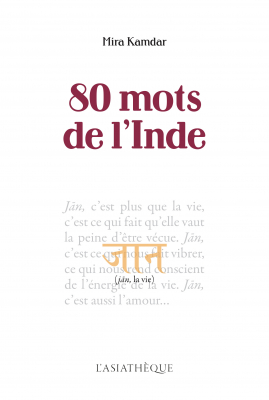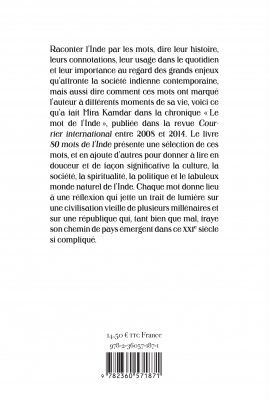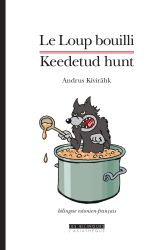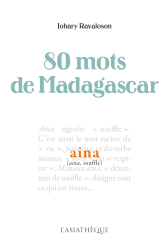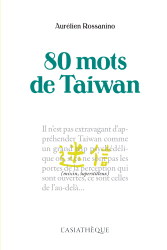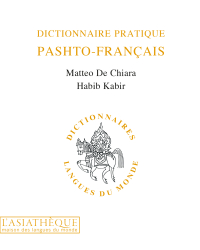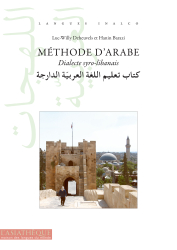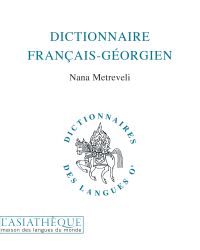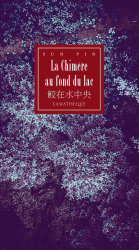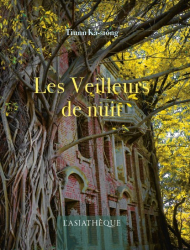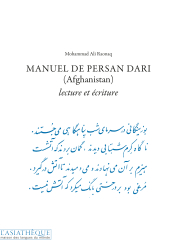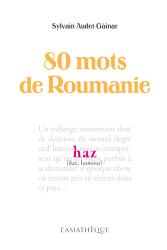Details
Format: Paperback
ISBN: 9782360571871
Collection: 80 mots du monde
12 x 18 cm
Weight: 189 gr
Pages: 192
First publication: 21/11/2018
Last printing: 04-2025
CLIL: 3718
India revealed through the words of Mira Kamdar
Revealing India through her words, their history, connotations, daily use and their significance with respect to the major issues facing contemporary Indian society, but also describing the ways in which these words impacted the author at different times of her life, is what Mira Kamdar did in the column “The Word of India”, published in the Courrier International magazine between 2009 and 2014. The book '80 Words from India' presents a selection of these words, as well as others, to help uncover India's culture, society, spirituality, politics and its remarkable natural world. Each word gives rise to reflection, shedding light on a civilization that is several millennia old, and on a republic which is slowly but surely making its way as an emerging country in a complex 21st century.
PRESS REVIEW
“...a playful and intelligent way to discover this harsh, colorful, disconcerting and welcoming country."
"... a fascinating little book that opens multiple windows on Indian life, blending its own memories with the great story..."
80 mots de l'Inde
“... Mira Kamdar offers a sensitive discovery of this immense country and sub-continent that is India through the Hindi language, its words, its turns of phrase and the sedimentation of meanings accumulated in each term. A great exercise, based on a selection from his column Le mot de l'Inde ... »
For language lovers: 80 words from India, by Mira Kamdar, L'Asiathèque
"... Mira Kamdar's little white book does not look very impressive, nestled in the rainbow of novels which dot the shelves of bookstores. Yet it is a collection of important words that populate its pages ... "
80 mots de l'Inde
“... This very simple translation actually hides very rich semantics. (...) To express oneself is to impose oneself, to defend oneself, to claim ... "
80 mots de l'inde
"... 80 Mots de l'Inde is a fascinating little book that helps us better understand a country that is not always accessible, we learn a lot ..."
80 mots de l'Inde
"... In 80 mots de l'Inde, Mira Kamdar took up the very essence of her chronicles but by bringing an analysis in line with today's news. By sharing her memories and her experience, she brings a personal touch that allows the reader to have a living and touching work ... "
CONTRIBUTORS' BIOGRAPHIES
Mira Kamdar

Through her father, a native of Gujarat, Mira Kamdar has India in her blood. World-renowned expert on India and author of several books on this country, including Motiba's Tattoos: A Granddaughter's Journey from America into her Indian Family's Past (Public Affairs, 2000; Plume, 2001) and Planet India, the turbulent ascension of a democratic giant (Actes Sud, 2008), she was a member of the editorial board of the New York Times responsible for writing on international affairs from fall 2013 to the end of 2017. Perfectly French-speaking, she is also the author of '' a thesis on Diderot, supervised by Philippe Lacue-Labarthe. Languages, turns of phrase and the sedimentation of meaning that words accumulate over time have always preoccupied him. American by birth, she has lived in France since 2010.
(photo © Tomas Van Houtryve)
TABLE OF CONTENTS
Table des matières (Table of Contents)
Préface (Preface)
Avant-propos (Foreword)
La culture
1. Rāga (raga) : la mélodie (melody)
2. Gīt : la chanson (song)
3. Ghazal : la poésie de l’amour (love poetry)
4. Bajantrī : le musicien (musician)
5. Tamāshā : le grand spectacle (spectacle)
6. Nātak : le théâtre (drama)
7. Vyangya : la satire (satire)
8. Nātch : la danse (dance)
9. Nazar : le coup d’oeil (gaze)
10. Sulekh : la calligraphie (calligraphy)
11. Kitāb : le livre (book)
12. Jāsūs : le détective, l’espion (detective/spy)
13. Āwāz : la voix (voice)
14. Ghī : le beurre clarifié (clarified butter)
15. Massālā (massala) : le mélange des épices (mixed spices)
16. Chāy : le thé (tea)
17. Khādī : le coton tissé à la main (hand-woven cotton)
La société
18. M˜ā : maman (mother)
19. Jān : la vie (life)
20. Ghar : la maison (house)
21. Vivāh : le mariage (wedding)
22. Gharwālī : la femme au foyer (housewife)
23. Talāq : le divorce (divorce)
24. Dost : l’ami (friend)
25. Virodhī : l’ennemi (enemy)
26. Shramik : le travailleur (worker)
27. Mufassil : provincial
28. Bak-bak : la tchatche (chatter)
29. Dard : la douleur (pain)
30. Izzat : l’honneur (honour)
31. Samāntā : l’égalité (equality)
32. Pravās : l’exil (exile)
33. Mūrkh : le cancre (dunce)
34. Lūt : le pillage (looting)
35. Jugād : la débrouillardise (adjustment)
36. Bijlī : l’électricité (electricity)
37. Bhūt : le fantôme (ghost)
38. Kabād : le déchet recyclable (recyclable waste)
39. Garībī : la pauvreté (poverty)
40. Māfī : le pardon (forgiveness)
41. Mazāq : la moquerie (mockery)
42. Khabar : l’information (news/information)
43. Qarz : la dette (debt)
44. Sāmājik : social
45. Chup : Silence !
46. Yād : la mémoire (memory)
47. Vishwās : la confiance (trust)
48. Dravid : dravidien (Dravidian)
La spiritualité
49. Shakti : l’énergie cosmique (cosmic force)
50. Sādhu (sadhu) : le saint homme (holy man)
51. Achūt : impur (impure)
52. Kāma : le désir (desire)
53. Yoga : la discipline de la conscience (discipline of the mind)
54. Himsā : la violence
55. Sharan : l’asile (asylum)
56. Masjid : la mosquée (mosque)
57. Bodh : la connaissance (wisdom)
58. Math : le monastère (monk)
59. Kesh : les cheveux (hair)
La politique
60. Desh : le pays (country)
61. Mat : le vote (vote)
62. Sarkār : le gouvernement (government)
63. Vansh : la dynastie (dynasty)
64. Padayātrā : le pèlerinage (pilgrimage)
65. Inqilāb : la révolution (revolution)
66. Band : la grève (strike)
67. Rājdroh : la sédition (sedition)
68. Ādhār (aadhaar) : la base
69. Sīmā : la frontière (border)
70. Videshī : l’étranger (foreigner)
71. Tyāg : la sécession (secession)
72. Lauh mahilā : la « dame de fer » ("iron woman")
73. Qaidī : le prisonnier (prisoner)
74. Jīt : la victoire (victory)
La nature
75. Janglī : sauvage (savage/junglee)
76. Jal : l’eau (water)
77. Chānd : la lune (moon)
78. Bandar : le singe (monkey)
79. Hāthī : l’éléphant (elephant)
80. Mānsūn : la mousson (monsoon)
Références de parution dans Courrier international
des « mots de l’Inde » qui figurent dans ce livre (Publication references in the Courrier International to the 'words of India' which feature in the book)
